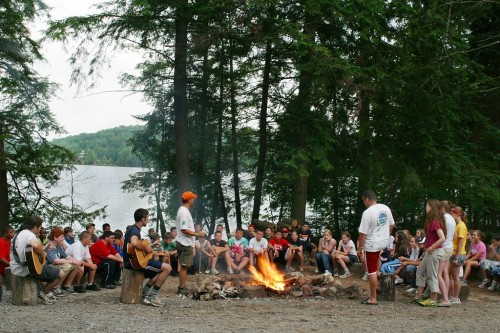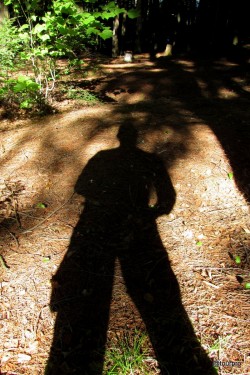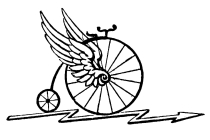Campers, Hikers, and Homeowners Can All Help Deter Bears
 Campers, hikers and homeowners should take precautions against unwanted encounters with black bears while enjoying the outdoors the New York State Department of Environmental Conservation (DEC) reminds the public today.
Campers, hikers and homeowners should take precautions against unwanted encounters with black bears while enjoying the outdoors the New York State Department of Environmental Conservation (DEC) reminds the public today.
Black bears will become a nuisance and can cause significant damage if they believe they can obtain an easy meal from bird feeders, garbage cans, dumpsters, barbecue grills, tents, vehicles, out-buildings or houses. When bears learn to obtain food from human sources, their natural foraging habits and behavior are changed. It is illegal to intentionally feed bears and the incidental or indirect feeding of bears is illegal once a written warning has been issued by DEC.
 Once a bear becomes a problem, DEC is often asked to intervene. However, bear relocations are rarely effective at solving the problem. Relocated bears often return to their original capture site or simply continue their bad habits at a new location. If the circumstances that led to the original problem are not corrected, other bears will quickly be attracted to the site and the problems will persist. Bears that become accustomed to obtaining food from humans will often become bold and assertive in their quest for food, potentially leading to property damage or dangerous situations for humans. Unfortunately, this often results in DEC having to euthanize the bear, echoing the adage, “a fed bear is a dead bear.”
Once a bear becomes a problem, DEC is often asked to intervene. However, bear relocations are rarely effective at solving the problem. Relocated bears often return to their original capture site or simply continue their bad habits at a new location. If the circumstances that led to the original problem are not corrected, other bears will quickly be attracted to the site and the problems will persist. Bears that become accustomed to obtaining food from humans will often become bold and assertive in their quest for food, potentially leading to property damage or dangerous situations for humans. Unfortunately, this often results in DEC having to euthanize the bear, echoing the adage, “a fed bear is a dead bear.”
The most effective way to prevent bears from becoming a problem is by not attracting them to your home, camp or campsite.
Prevent Problems with Bears at Home and Camp
- Never feed bears, it is illegal in New York State to intentionally feed bears.
- If you believe that bears are being fed, intentionally or unintentionally, immediately report it to DEC.
- Stop feeding birds as soon as the snow melts. Birds do not need supplemental food in the summer, when natural foods are most abundant. Clean up all seed fragments and shells left over from winter feeding as the smell will attract bears.
- Dispose of garbage as frequently as possible. Store it in clean, secure containers (top-latched, tied or chained). Sprinkle ammonia inside the garbage bag before closing. Tie off garbage bags before placing them in containers. Keep garbage containers inside buildings whenever possible.
- If garbage is picked up at the curb, put the garbage out just before the scheduled pickup or place it in a roadside bear-resistant container. Do not put garbage out the night before curbside pick-up. Clean garbage cans frequently with ammonia.
- Do not add meat scraps, bones or melon rinds to your compost pile.
- Do not burn garbage, especially meat scraps and grease.
- Clean barbecue grills before night fall and, after they cool down, store them inside;
- Feed pets indoors and store pet food indoors. If pets must be fed outdoors, bring uneaten food and dishes before dark.
Prevent Problems with Bears While Hiking and Camping in the Backcountry
- Store food, toiletries and garbage in bear resistant containers or “food hangs.” If you have no choice but to hang your food, be sure to use a dark colored cord. The cord should be 75 feet long and the bag should be hung 15 feet above the ground and at least 10 feet away from trees.
- Keep food in hangs or in bear resistant containers at all times, take down only what is needed for cooking. Bear resistant canisters are a highly effective means for preventing bears from getting food, toiletries and garbage from back country campers. More information at: Bear Resistant Canisters.
- Bear resistant containers are required to be used by all overnight campers within the Eastern High Peaks Wilderness Zone of the Adirondack Forest Preserve.
- Never leave food unattended unless it is in a bear resistant container or in a food hang.
- Never cook or eat in your sleeping area.
- Cook early, no later than 5 p.m. if at all possible.
Prevent Problems with Bears at Campgrounds
- Do not leave coolers or food out at any time. Store them securely in either the trunk of your car or in the passenger area of your truck. Keep windows shut and food and coolers out of sight.
- Where food lockers are provided, food and coolers must be stored and locked inside.
- Clean up immediately after all meals.
- Clean grills, pots, pans, cooking utensils, and wash basins after each use.
- Do not wash dishes under the water faucets.
- Do not put grease, garbage, plastic diapers, cans, bottles or other refuse into the fireplace.
- Do not keep food or coolers in your tent.
- Do not wear clothing to bed that was worn while preparing or eating meals.
- Keep campsites as clean as possible. Bring all garbage and recyclables to the recycling center each day by 8 p.m.
While these rules are required to be followed at DEC campgrounds, campers at other private and public campgrounds are also strongly encouraged to follow these practices to avoid bear encounters.
Approximately 4,000 – 5,000 bears live in and around the Adirondacks. For additional information about bears in New York State and the initiatives DEC is employing to help study and manage the population, visit the DEC Black Bear web page.

 It’s only a few weeks before school ends for the summer and you haven’t planned any way to occupy your child/children for the summer? No problem. Look no further than the New York State Department of Environmental Conservation’s (DEC) summer environmental education camps! At $350 a week these camps are a terrific bargain, half the price of camps run by other non-profits, and they offer amazing opportunities for your child to learn and interact with the natural environment. If exploring a forest, swamp, lake and a field or fishing, hiking, canoeing, swimming, star gazing and meeting professionals in environmental fields sounds like a great way to spend a week of the summer, then we have a camp for you!
It’s only a few weeks before school ends for the summer and you haven’t planned any way to occupy your child/children for the summer? No problem. Look no further than the New York State Department of Environmental Conservation’s (DEC) summer environmental education camps! At $350 a week these camps are a terrific bargain, half the price of camps run by other non-profits, and they offer amazing opportunities for your child to learn and interact with the natural environment. If exploring a forest, swamp, lake and a field or fishing, hiking, canoeing, swimming, star gazing and meeting professionals in environmental fields sounds like a great way to spend a week of the summer, then we have a camp for you!



